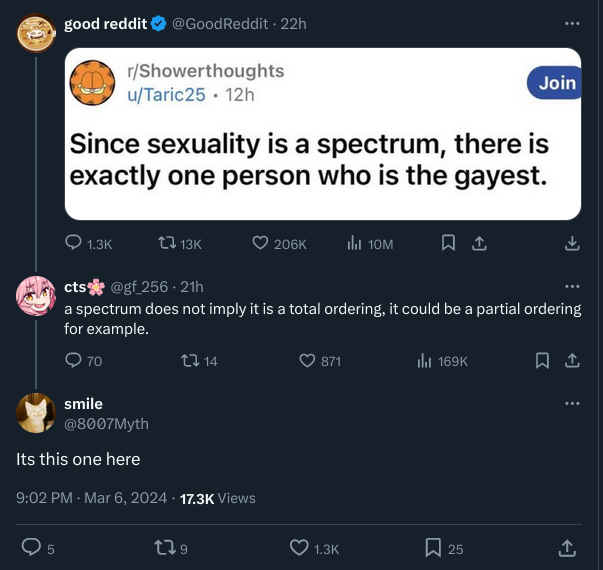this post was submitted on 27 May 2024
964 points (99.2% liked)
196
17053 readers
1129 users here now
Be sure to follow the rule before you head out.
Rule: You must post before you leave.
If you have any questions, feel free to contact us on our matrix channel.
founded 2 years ago
MODERATORS
you are viewing a single comment's thread
view the rest of the comments
view the rest of the comments

Are you aware of the plank length? It's the distance less than which which we can no longer determine if 2 things are any closer.
Don't worry, I understand.
Yes, but distance is still continuous, a minimum measurable distance (between stuff) doesn't make space granular. I suppose there might be a minimum measurably meaningful number of configurations, but I'm not super convinced.
My claim accounts for the possibility that the distances of particles may physically differ by amounts more granular than a plank length. My statement was that they are indiscernable. There are infinite copys of every person more closely identical than the two most similar identical twins. So closely identical that no physically possible device could ever distinguish between them. We cannot know if space is continuous. We simply know that if it is not continuous, it is of granularity as fine or finer than the plank length. So there is a meaningful sense in which there are finitely many macroscopic objects.